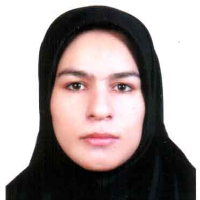Implementing Quaternary Prevention Using the Rural Family Physician Program in Iran: Grounded Theory
Author(s):
Article Type:
Research/Original Article (دارای رتبه معتبر)
Abstract:
Background
The present study investigated the possibility of implementing quaternary prevention using family physicians in Iran’s health system.Methods
The present study was a qualitative study conducted with a grounded theory approach. Thirty-four participants, who were faculty members and experts, were selected by purposive and theoretical sampling using the snowball approach until data saturation. The data were collected through semi-structured interviews. The interviews took 20 to 60 minutes each, based on the circumstances and the participant’s willingness to continue. Data analysis was performed along with data collection by Strauss and Corbin’s constant comparative analysis. Using Lincoln and Guba criteria, the accuracy and strength of this research were confirmed.Results
The dimensions model of quaternary prevention using family physicians in Iran were specified in six axial categories: causal conditions, contextual conditions, intervening conditions, strategies, and outcomes. The phenomenon was the promotion of quaternary prevention, including defining quaternary prevention, family physicians, the philosophy of quaternary prevention, and the philosophy of family physicians—social, political, economic, cultural, and technological conditions as contextual and intervening conditions. Causal conditions were doctors, patients, and the health system. Two main strategies were intersectoral administration and intra-sectoral governance. Outcomes included efficiency and the provision of security for society.Conclusion
For quaternary prevention promotion and to offer ethically and rationally acceptable scientific services to the people, it is necessary to promote the position of the family physician as the primary implementer of quaternary prevention in healthcare. Getting to the PHC umbrella is achieved through intra-sectoral leadership and inter-sectoral governance, which supports the patient and reduces unnecessary care.Keywords:
Language:
English
Published:
Journal of Health Sciences and Surveillance System, Volume:11 Issue: 4, Oct 2023
Pages:
750 to 759
https://www.magiran.com/p2632382
سامانه نویسندگان
مقالات دیگری از این نویسنده (گان)
-
Evaluation of the Patients’ Expectations and Satisfaction with Physicians in Iranian Public Clinics: A Study Conducted in Kerman
Sareh Balavar, Leila Vali, Seyed Hossein Saberi Anaraki, Yunes Jahani, Rahil Ghorbaninia *
Journal of Health Sciences and Surveillance System, Jul 2023 -
The process of requesting clinical tests in a reference university laboratory center
Hadis Motaghi Pisheh, Somayeh Noori Hekmat, *
Researcher Bulletin of Medical Sciences, Sep 2021



